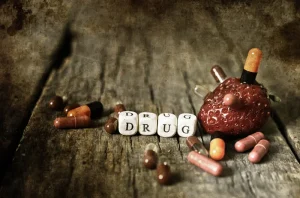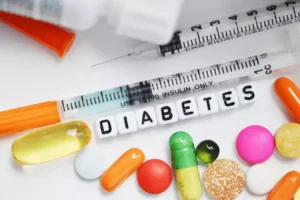
This continuation of support, motivation, and, in some cases, therapy will significantly enhance their chance of long-term sobriety. Here you will find information about sober living houses, what they do, and how you, or your loved one, can take full advantage of the support on offer and enjoy a life free from addiction. Under recently updated NARR standards, certified sober living homes are encouraged to provide secure storage for medications and facilitate access to MAT as prescribed. These homes are also encouraged to maintain a supply of naloxone and ensure staff are trained in overdose reversal, supporting a safer recovery environment. Depending on the city, neighborhood and services offered, rent can range from $300 to $2,000 per month. Some sober homes do not require residents to pay utility bills, but utilities may be rationed to avoid waste.
What Defines Sober Living Homes
To stay in a sober living house, you must pay your share of the rent and other costs and abide by the home’s rules and regulations. As the National Institute on Drug Abuse (NIDA) reports, the length of time a person spends in substance abuse treatment can directly influence their outcome in recovery. There is no “magic” number however, as treatment and recovery are highly individual. While one person may be ready to reenter society after three months, another may benefit from a longer stay.
Online Therapy Can Help
Some sober living homes have exercise equipment, fitness areas, recreational space, pools and cookout areas. The homes may also be near an outpatient treatment center or on the campus of residential rehab facility. Sober living homes are maintained through fees, and residents can usually stay as long as they want. There is no in-house treatment or requirement to attend a specific recovery program, but 12-step participation is popular in Oxford Houses. A new house member must be interviewed by current residents and must receive an 80 percent vote of approval to be accepted. The best facilities employ compassionate staff and enforce strict rules that support the recovery process.
- However, they’re a great way to bridge the gap between residential treatment and reintegration into society.
- Sober living homes are realistic, cost-effective living environmentsr for people in recovery.
- While some sober living homes may require residents to have completed a formal addiction treatment program, such as inpatient rehab or outpatient counseling, others may not have this specific requirement.
- Residents are encouraged to share their experiences, learn from one another, and help each other stay accountable.
Family and Children’s Programs

The best sober living homes consider residents’ unique needs by offering specific services to address personal circumstances and challenges. This might involve accommodating requirements related to mental health, such as providing access to specialized therapy or medication management. Other challenges may include physical disabilities or developmental learning disabilities.

Those who live in these houses rent rooms indefinitely and live a life in accordance with their responsibilities, like work and school. Alongside these amenities, luxury recovery homes offer personalized treatment plans, including therapy, medical care, and holistic services like yoga and meditation. The focus is on providing a nurturing and discreet environment where residents can recover without sacrificing comfort. Luxury homes often require residents to use private health insurance for payment.

- There is no in-house treatment or requirement to attend a specific recovery program, but 12-step participation is popular in Oxford Houses.
- These skills will enable someone to function well in society when they leave the facility.
- When the researchers of a study published in the Journal of Psychoactive Drugs looked into two sober living communities, they discovered that over half of each home’s residents had exited by the 12-month mark.
Extended stays allow residents to deeply internalize positive routines, ensuring that they become second nature. This recovery house structure provides a buffer against potential relapses once they transition into the wider world outside the life of drug addiction. Some sober living programs might set a limit at one year, ensuring sober house near me turnover and availability for others in need. In contrast, others prioritize the resident’s journey, allowing them to stay as long as they continue to benefit from the environment, contribute positively, and adhere to house rules. Some recovering addicts stay in sober living homes for a few months before reentering the world.

Sober living options are a great next step for people who have completed rehab but require ongoing support. Lack of a stable, alcohol-free and drug-free living environment can be a serious obstacle to sustained recovery, according to a study published in the Journal of Psychoactive Drugs. The duration of your stay in a sober living house primarily depends on individual needs. While some residents might feel ready to move on after a few months, others may require over a year to rebuild their lives and solidify their sobriety. Sober living home managers often recognize the financial challenges many recovering individuals face. Therefore, many offer flexible payment options, including sliding scale rates.

A Complete Guide To Sober Living Homes
The services, rent, rules and living conditions at sober living homes vary from place to place. Some homes are part of a behavioral health care system where residents live next to a rehab clinic, participate in outpatient therapy and have access to the clinic’s recreational activities. A Sober Living Home (SLH) and a Halfway House are both integral components of the recovery journey for individuals who have struggled with drug abuse, alcohol rehab, or mental illness. However, they serve different functions and are structured differently, tailored to meet specific stages in the journey toward recovery and independent living. A sober living home is a temporary transitional living space for people recovering from substance abuse.




